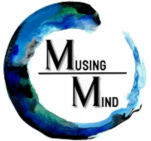
An Opening Thought on Death
If I had a podcast, I’d begin by asking each guest:
So, _______, how often do you think about death? How carefully do you keep in mind its certainty? How often do you evaluate your life, the things you’re doing, making, accomplishing (or not), in view of your own impermanence? How radically does your impermanence undermine the meaning of any/all things you do?
I’d ask because it’s an inescapable lens I turn toward myself, and it’s how I often internally respond to stories of what others are doing with their lives:
We’re alive only for a brief moment, dazed but awake to this ball of rocks and water and love and suffering, hurtling through a cosmos of inconceivable dimensions, grandeur, and unknowns, existing within intricate webs of intersubjective realities and innumerable varieties of conscious experience, as momentary culminations of a long line of evolutionary development; all this, and you’re doing that right now, that’s what you’re doing with your life? With this moment?
I think this of myself when I’m watching House reruns, or spooning a full jar of peanut butter. But also when I’m writing, meditating (it can feel especially ridiculous to answer that long line of inquiry by sitting on a cushion and doing absolutely nothing - wrote about this over here), communing with others, or doing whatever else I generally consider ‘good’ things to do.
I’m not sure there’s a satisfying answer to the above bolded line of inquiry, so much as I think there’s value in making one’s life an intentional answer, as opposed to an avoidance. I might eat a full jar of peanut butter while staring my certain death directly in the face, and if so, great! But if I do so mindlessly, captive to the dopamine and indulgence of the activity with no conscience of its larger context, then I think I might be missing something, or depriving the activity of some existentially valuable context.
So to rephrase, the question I ask myself and would delight in asking others:
Is your life a denial and avoidance, or response, to certain death and impermanence? How do these tensions play out for you?
New Essays
Two new essays since last time. One on ‘Existential Creativity’, and another on ‘The Purchasing Power of Complexity’.
Existential Creativity

On the creative value in asking how we might live rather than how we should live.
Developing existential creativity relies, firstly, on a declaration bellowed by philosopher Peter Sloterdijk:
“I herewith exit ordinary reality!”
‘Ordinary reality’ is the pre-ordained network of pathways through life, paved by convention, habit, safety, and complacency. Cultivating existential creativity is to generate a ‘velocity of being’ with enough gusto to break from conventional orbit, out into the atmospheres where we engage in original relations with the Universe.
Twitter thread elaborating further:

You can read the full essay here
(on the topic of existential creativity, Hunter S. Thompson wrote something of a manifesto for the idea in a letter to his friend, who’d asked for life advice. You can read that here.)
The Purchasing Power of Complexity
This essay arose from a passage in Annie Dillard’s Pilgrim at Tinker Creek:
“A nightmare network of ganglia, charged and firing without my knowledge, cuts and splices what I do see, editing it for my brain. Donald E. Carr points out that the sense impressions of one-celled animals are not edited for the brain: ‘This is philosophically interesting in a rather mournful way, since it means that only the simplest animals perceive the universe as it is.’”
In short, our evolutionary journey from prokaryotes to humans included the proliferation of really intricate pathways that sense impressions, as they’re translated into electricity, travel through the body to reach the appropriate receptors. The sense clarity of single-celled organisms was sacrificed for our magnificently complex networks of sense & perception.
So, if we’ve traded clarity for complexity, what have we gained? What is the purchasing power of all this acquired complexity? One new toy we’ve bought is self-consciousness, and the essay explores if we might engineer forms of living that harness that odd form of complexity to re-generate and amplify clarity. The march of complexity would then be a circling one, always returning to clarity as it makes wider circles into the unknown, bringing back and utilizing its newfound tools in service of that original clarity.
Kind of like this diagram, with clarity as the central red dot, and widening circles of complexity that expand, but always cycle back through the origin point of clarity while they do so:

You can read the full essay here.
MeaningOfLife.tv Interview Series on Work
Robert Wright (of Why Buddhism is True) heads up this project with tons of interesting dialogues. This video is from an interview series where they asked ‘everyday Americans’ about their work, and ultimately about their lives & satisfaction (an interplay I’m deeply interested in and wrote about over here).
Hunter S. Thompson’s Life Advice
An excerpt from the previously referenced letter Hunter wrote to his friend, because it merits further mention:
“I’m not trying to send you out ‘on the road’ in search of Valhalla, but merely pointing out that it is not necessary to accept the choices handed down to you by life as you know it. There is more to it than that — no one HAS to do something he doesn’t want to do for the rest of his life. But then again, if that’s what you wind up doing, by all means convince yourself that you HAD to do it. You’ll have lots of company.”
Full letter found here.
Reading From Around the Internet
Attention is not a resource but a way of being alive to the world | Dan Nixon in Aeon Magazine
Saying we live in an ‘attention economy’ may well define the behavior and incentive structures of present day market interfaces, but it does not well define attention.
Reducing attention to nothing but quantified, economic units sells that complex matrix of experience far short, and cements the troublesome narrative that attention simply is what it is, and what matters is how we spend it, rather than how we explore (read: deconstruct and reconstruct) it.
Attention is our meeting point with the world, like a user interface for life, as open to programming adjustments as any other software. Nixon’s article differentiates between ‘attention-as-resource’ and ‘attention-as-experience’ in a really useful way. He cautions against our redefining self-knowledge as merely a wise, quantified allocation of attention, in favor of a more robust, experiential study into its composition and potentialities.
If you want to learn how to play boogie woogie piano…
If you’re looking to learn boogie woogie piano, which any sane human being should, I’ve found coupling this wikiHow article with this youtube video the best learning duo in the business.
If you need more inspiration, check out this Henri Herbert video:
As always, feel free to reach out for any reason - comments, suggestions, or collaborations - or check out the full website: www.MusingMind.org.
Cheers,
Oshan